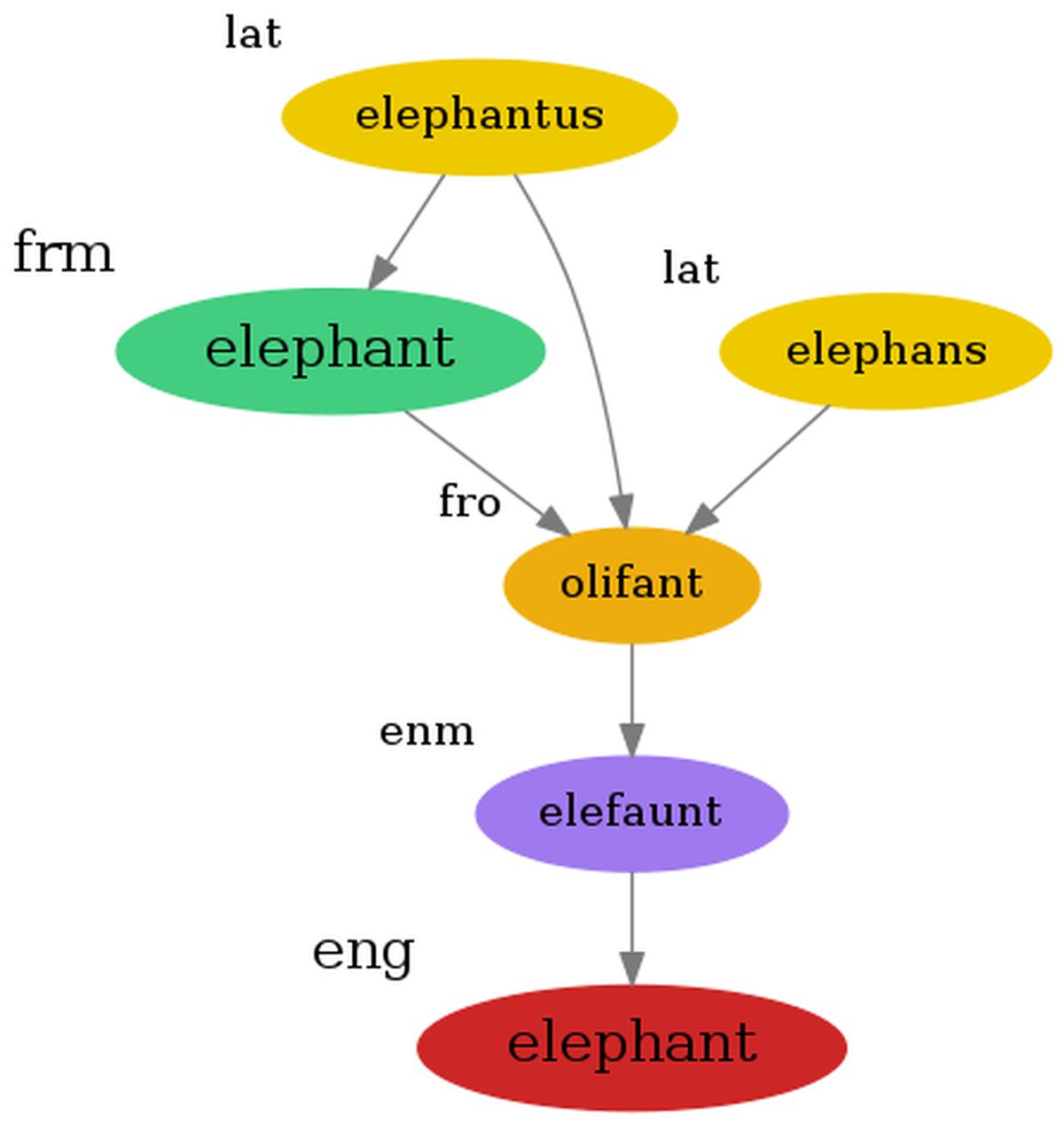I'm wondering about the origins of a particular word and, while my first thought was to ask the ELU community, I decided I should do the work myself.
Where should I start looking? I'd love to see some suggestions.
I'm wondering about the origins of a particular word and, while my first thought was to ask the ELU community, I decided I should do the work myself.
Where should I start looking? I'd love to see some suggestions.
etymonline is a great resource for looking up specific words.
If you are at a university, you might have OED access, which is the most in-depth and hardcore etymology resource (if you can get to it).
Take Our Word For It is a fun website for browsing through and learning about etymologies in a more entertaining, less structured way.
General purpose:
Newspapers:
Particularly for computing terms:
Google Groups for Usenet archives (also good for slang) (1981 - present)
DSpace@MIT for the CSAIL archives (1959 - present)
IETF's RFC archive (1969 - present)
PDP-10 software archive (~1967 - ~1990), for old source code
Tech Model Railroad Club dictionary, TMRC 1st & 2nd editions (1959, 1960)
The Jargon File and its archives (also here) (1981 - 2003)
MIT's The Tech newspaper archives (1881 - present)
Bitsavers' Software and PDF Document Archive (misc. dates)
* Care must be taken with Google Books' metadata, especially when only a snippet is shown: occasionally the book was published later than the the year Google claims it was, and sometimes they accidentally include multiple books for each record.
Therefore it's important to double check the date: scroll up to confirm the real date for "full view" books, and for preview/"snippet view" verify with another source (such as the Internet Archive, Project Gutenberg or the HathiTrust Digital Library).
I would also like to add our etymology dictionary that draws directed etymology graphs called Etymologeek.com.
Here is an example of a directed graph:

It works in multiple languages, providing etymology data, descendants, related words and more. It also has a pretty quick search, and the index is constantly growing in the number of words and slowly growing in accuracy too.